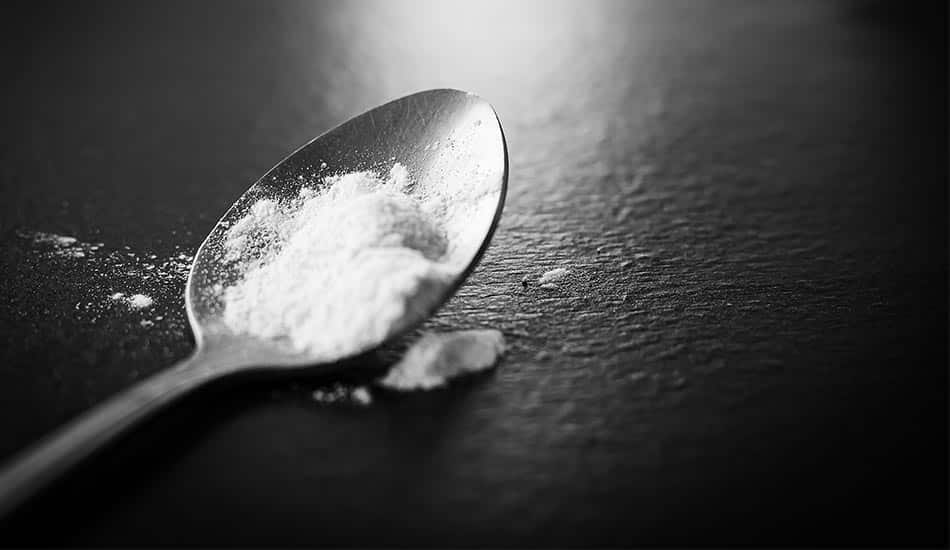- Home
- Treatment
Treatment Designed for You.
Get in touch with Absolute Awakenings today and begin your journey to long-term healing & recovery. - What We Treat
Get help today, start your journey!
An Experience in Healing
Get in touch with Absolute Awakenings today and begin your journey to long-term healing & recovery. - About
The Rehab You've Been Looking For
Get in touch with Absolute Awakenings today and begin your journey to long-term healing & recovery. - Tour
- Resources
Resources
Step-by-Step Alcohol Recovery in Denville Accredited Rehabs
February 25, 2026How NJ Drug Addiction Programs Target Root Causes Effectively
February 20, 20265 Research Backed Therapies in Absolute Awakenings’ Multifaceted Care
February 13, 2026How Outpatient Rehab Helps Treat Alcohol and Drug Addiction
February 6, 2026Don't Wait Another Day.
Get in touch with Absolute Awakenings today and begin your journey to long-term healing & recovery. - Admissions
The Rehab You've Been Looking For
Get in touch with Absolute Awakenings today and begin your journey to long-term healing & recovery. - Contact
(866) 627-0196
3000 NJ-10, Morris Plains, NJ 07950
admissions@absoluteawakenings.com
Schedule a Tour Now
Get in touch with Absolute Awakenings today and begin your journey to long-term healing & recovery.
Begin Your Journey Now
Begin Your Journey Now
- Home
- Treatment
Treatment Designed for You.
Get in touch with Absolute Awakenings today and begin your journey to long-term healing & recovery. - What We Treat
Get help today, start your journey!
An Experience in Healing
Get in touch with Absolute Awakenings today and begin your journey to long-term healing & recovery. - About
The Rehab You've Been Looking For
Get in touch with Absolute Awakenings today and begin your journey to long-term healing & recovery. - Tour
- Resources
Resources
Step-by-Step Alcohol Recovery in Denville Accredited Rehabs
February 25, 2026How NJ Drug Addiction Programs Target Root Causes Effectively
February 20, 20265 Research Backed Therapies in Absolute Awakenings’ Multifaceted Care
February 13, 2026How Outpatient Rehab Helps Treat Alcohol and Drug Addiction
February 6, 2026Don't Wait Another Day.
Get in touch with Absolute Awakenings today and begin your journey to long-term healing & recovery. - Admissions
The Rehab You've Been Looking For
Get in touch with Absolute Awakenings today and begin your journey to long-term healing & recovery. - Contact
(866) 627-0196
3000 NJ-10, Morris Plains, NJ 07950
admissions@absoluteawakenings.com
Schedule a Tour Now
Get in touch with Absolute Awakenings today and begin your journey to long-term healing & recovery.
- Home
- What We Treat
- Substance Abuse
- Fentanyl
Fentanyl Addiction: Signs, Symptoms, Risks, and Treatment Resources
Fentanyl is one of the most powerful opioid painkillers on the market. It is synthetic, meaning it is made in a lab rather than derived naturally. Many overdoses result from the use of this drug, and many more develop addictions and dependencies.


What We Treat
We Accept With Most Major Insurance
If you or a loved one is ready to get help but finances are holding you back, give us a call. We can work with your health insurance provider.






Related Topics
Table of Contents
Key Points
- Fentanyl is an extremely potent synthetic opioid painkiller
- This drug may be prescribed or made illicitly
- Fentanyl may be cut with dangerous substances such as rat poison
- For those struggling with a fentanyl addiction, help is available
What is Fentanyl?
Fentanyl is 100 times stronger than morphine, and it is even several times stronger than heroin.[1] This drug is prescribed by physicians for severe pain, but illicit fentanyl is also manufactured on the street and is illegal and unregulated.
While both forms can be dangerous, the illegal form is far more riskier since it is often mixed with dangerous filler ingredients.
Fentanyl It is a Schedule II drug, meaning it has medical use but also a high potential for addiction and abuse. On the street, many people refer to it as jackpot, murder 8, goodfellas, and dance fever. Its commercial names include Sublimaze, Duragesic, and Actiq.
Fentanyl Addiction and Abuse
Signs of Addiction to Fentanyl
Withdrawal symptoms are telltale signs that a person has an addiction. The symptoms show that the body is having a hard time functioning properly without the presence of the drug. Cravings for the drug can also be very strong and lead to irritability, mood changes, and violent outbursts.
Effects of Fentanyl Use
When taken as prescribed, fentanyl should not produce any sense of euphoria. It will primarily alleviate a person’s pain. This is useful when a person is recovering from surgery or has a painful condition like cancer or AIDS. However, an addiction is far more likely to occur when a person starts misusing the drug. They may take more than they’re supposed to, or they may snort the substance or take it in other risky ways.
Misusing the drug allows a person to experience a sense of euphoria and relaxation. However, once the drug wears off, it may cause depression, anxiety, panic, and paranoia.
Dangers of Long-Term Fentanyl Use
Fentanyl will eventually change the way the brain works after you use if for many years. Stopping the drug suddenly will send the brain into a panic because it has gotten so used to the presence of the drug that it will have a hard time functioning normally without it.
It may not be able to produce some of its natural hormones, such as dopamine and serotonin, both of which are important for regulating your mood and other factors. It can also damage your liver, kidneys, heart, and lungs.
Side Effects of Fentanyl
While fentanyl is effective at reducing pain, it can also cause some unpleasant side effects. Common effects include drowsiness, headaches, confusion, dizziness, difficulty urinating, and anxiety. Some people may experience extreme fatigued or abdominal pain.
Statistics on Fentanyl Use, Misuse, and Addiction
70,601 people overdosed on synthetic opioids in 2021, and most of them were due to fentanyl.[2] Because fentanyl is so powerful, it has a very high risk of abuse. Some may start using fentanyl to help with their pain, but they may soon find that they are dependent on it. Others may start using fentanyl illegally after having used other illegal drugs.
Due to the way this drug affects the brain, it is very difficult to stop taking it once an addiction forms.
Can You Overdose on Fentanyl?
Signs and Symptoms of Fentanyl Overdose
Most people will fall unconscious in the case of a fentanyl overdose. Hypoxia may occur, which is when the person’s breathing becomes very shallow or stops, and the person’s brain is no longer receiving any oxygen. This can lead to brain damage and death.
What to do if you suspect someone is overdosing on Fentanyl:
If you find someone who has overdosed on fentanyl, call 911 and check if they’re breathing. If they’re not, perform CPR. If their breathing is shallow or if they are not yet fully unconscious, stay with them and try to keep them calm. The paramedics will give the person a dose of naloxone to reverse the overdose.[3]

How is Fentanyl Taken?
Medical fentanyl may come as a patch that sticks to the skin or a lozenge that are sucked on for a prolonged period. It is also possible to inject the substance.
Illegal fentanyl may come as a powder is snorted, as eye drops, or nasal sprays. Some illegal fentanyl is expertly crafted to resemble prescription opioid pills.
Most people who use fentanyl illegally snort or inject it for an instant and intense high. Many people also mix fentanyl with other opioids or alcohol. Mixing fentanyl with anything can increase its risk of addiction, overdose, and death.
Cutting Agents Used for Fentanyl
Fentanyl is sometimes cut with cheaper illicit drugs, such as meth or heroin. It is also cut with very dangerous substances, such as laundry detergent, rat poison, talcum powder, and so on. Fentanyl is cut with other substances to extend the life of the supply so that the drug dealers can make more money.
Fentanyl Addiction Treatment
Because fentanyl is such a potent drug, it can be difficult to quit once an addiction forms. This is why rehab for fentanyl can be so helpful for many people. Fentanyl addiction treatment can give you all the resources and help you need to battle your addiction over several months. Therapy is at the core of this treatment and can help you learn how to tackle your problems in ways other than drug use.
To get the support you need to recover, consider outpatient treatment or detox placement. You can also consider treatment for co-occurring disorders and trauma informed care. This will allow you to put your health and wellbeing first
Therapies Used in Fentanyl Addiction Treatment
Treatment for fentanyl primarily involves therapy such as cognitive behavioral therapy (CBT), dialectical behavioral therapy (DBT), motivational interviewing (MI) and other forms of psychotherapy. Accompanying holistic therapies such as art and music are also helpful.
Dual Diagnosis for Co-Occurring Disorders
Those who become addicted to fentanyl may develop psychotic symptoms, such as delusions and paranoia. This is due to the way fentanyl degrades the brain over time. It can also cause anxiety and depression.
Those who abuse fentanyl may have an opioid use disorder or a general substance use disorder. Those who got started with prescription fentanyl may have very painful conditions that may need to be treated with a different type of medication.
Fentanyl Withdrawal Management Treatment
While detoxing is difficult, it can be made easier with professional withdrawal management. Detoxing takes a few weeks for most people, and treatment after that may take several months. The cost will depend on the treatment program you choose along with the length of your stay and your insurance.
Drugs Used in Fentanyl Withdrawal Management
Buprenorphine and naloxone may both be used to help people get past the painful symptoms of fentanyl withdrawal. This can reduce cravings and body pain.

Amanda Stevens, BS
Medical Content Writer
Amanda Stevens is a highly respected figure in the field of medical content writing, with a specific focus on eating disorders and addiction treatment. Amanda earned a Bachelor of Science degree in Social Work from Purdue University, graduating Magna Cum Laude, which serves as a strong educational foundation for her contributions.
Absolute Awakenings Editorial Guidelines
At Absolute Awakenings, we take information integrity seriously. We have dedicated our resources to ensure that all content published to our blog is medically sound. As such, all content on our blog has been thoroughly reviewed by a doctorate level clinician such as a Medical Doctor, or Psy.D, so that you can trust all of the data we publish.
What We Treat
We Accept With Most Major Insurance
If you or a loved one is ready to get help but finances are holding you back, give us a call. We can work with your health insurance provider.






Related Topics
Find Recovery at Our NJ Fentanyl Rehab Center
Don't Let Fentanyl Addiction Take Everything from Your Life
The grip of fentanyl addiction can be overwhelming, but with the right treatment and compassionate care, recovery is possible. Absolute Awakenings Treatment Center in New Jersey offers a safe haven for healing and self-discovery. Our proven fentanyl addiction treatment program is designed to provide you with individualized care that addresses your unique needs. If you or a loved one is ready to leave fentanyl behind and step into a brighter chapter, get in touch with us today. Your path to recovery starts with one phone call.
Frequently Asked Questions
Can Fentanyl Be Fatal?
Fentanyl can certainly be fatal, especially when misused. Illegal fentanyl taken from the street is especially dangerous since it is usually cut with a variety of filler materials that are not meant for human consumption. It is also dangerous when you mix fentanyl with other substances, like alcohol or other drugs.
Where Does Fentanyl Come From?
Medicinal fentanyl is made in a lab and is a pure product. Illegal fentanyl is made by drug gangs and individuals who cut the substance with dangerous ingredients. Fentanyl is a synthetic product, unlike morphine, which is an opioid derived from natural poppy plants.
What Are Fentanyl Withdrawal Symptoms Like?
Fentanyl withdrawal symptoms are often very severe, especially when you stop taking the drug after several years. The symptoms include headaches, vomiting, dizziness, fever, sweating, and hallucinations. Some people may experience heart attacks, seizures, strokes, a coma, and even death.
This is why it’s so important to have professional support when going through these withdrawal symptoms. Once the drug is fully out of your system, it will be much easier for you to get back on your feet.
Sources
[1] Centers for Disease Control and Prevention. (2023b, May 12). Fentanyl facts. Centers for Disease Control and Prevention. Retrieved from https://www.cdc.gov/stopoverdose/fentanyl/index.html on May 24, 2023.
[2] U.S. Department of Health and Human Services. (2023b, March 31). Drug overdose death rates. National Institutes of Health. Retrieved from https://nida.nih.gov/research-topics/trends-statistics/overdose-death-rates on May 24, 2023.
[3] NIDA. (2021, June 1). Fentanyl DrugFacts. Retrieved from https://nida.nih.gov/publications/drugfacts/fentanyl on May 24, 2023.
Stories of Hope & Healing
Hear from Our Alumni
A jewel among many local drug and alcohol rehab treatment centers in Denville, New Jersey, the care and treatment options you’ll receive at Absolute Awakenings is second to none. From not knowing if you’ll ever feel in control again to being confident in the path you’re on, we are invested in YOU every step of the way.
Begin Your Journey to Long-Term Healing
Make the Call. Change Your Life.
Yes, You Can Get Your Life Back...
With our trained and compassionate professionals in your corner, freedom can be yours. All it takes is you choose yourself. Choosing a better tomorrow.
© Copyright 2025. All Rights Reserved. AATC.
- Terms & Conditions
- Privacy Policy


